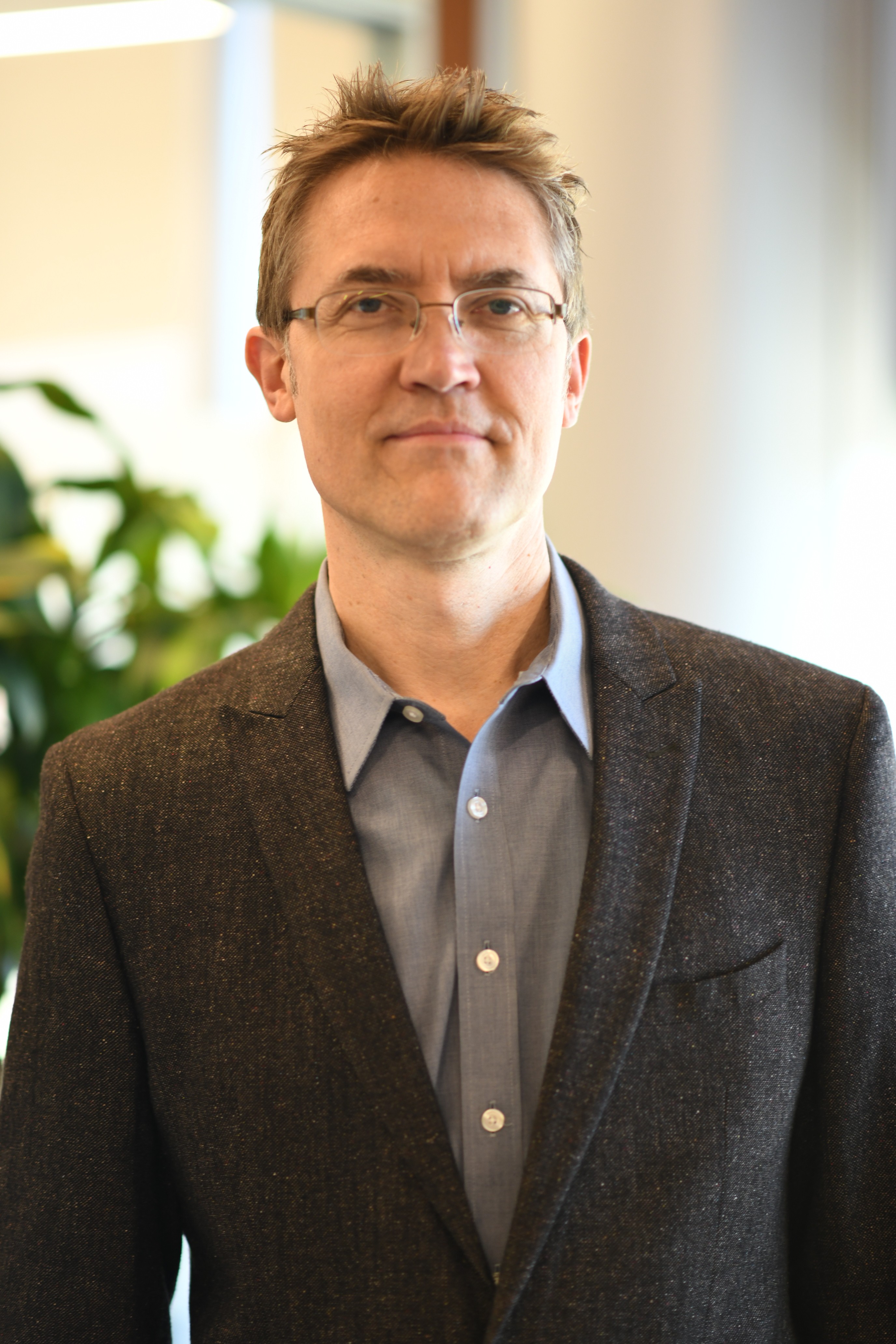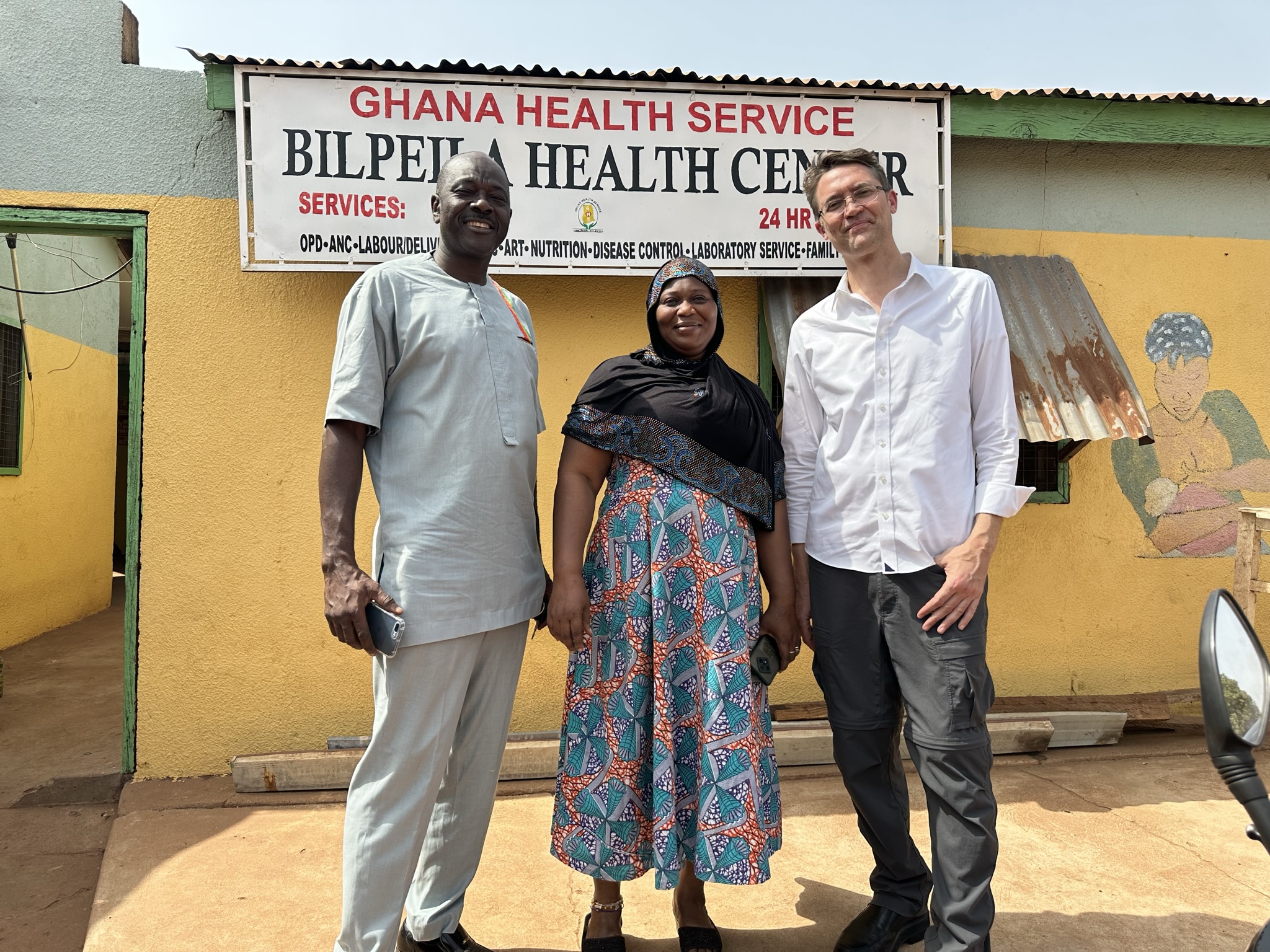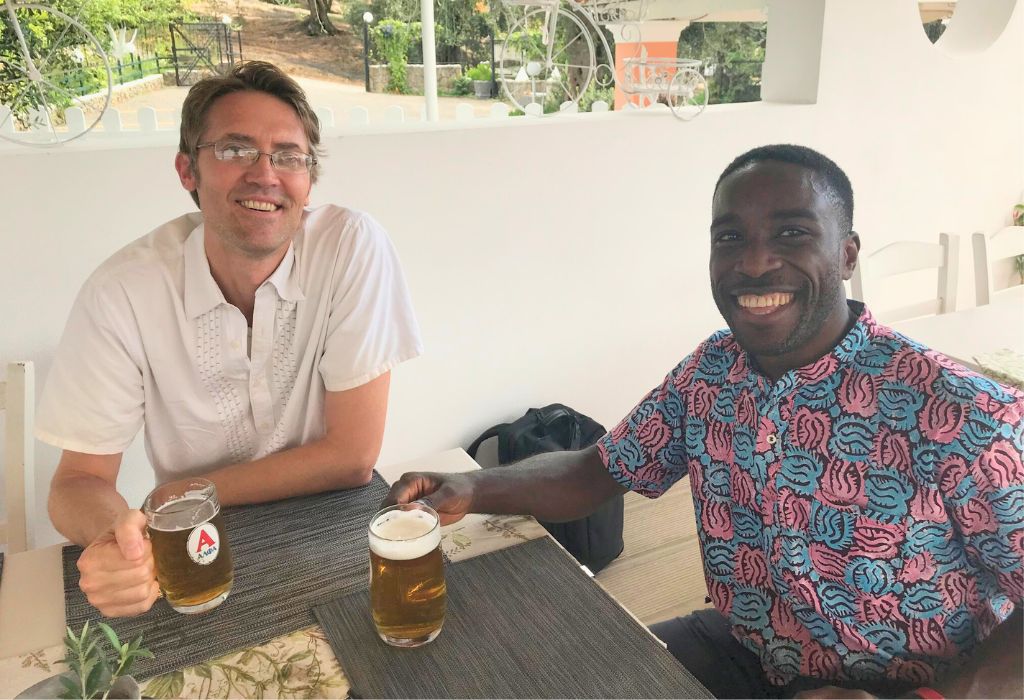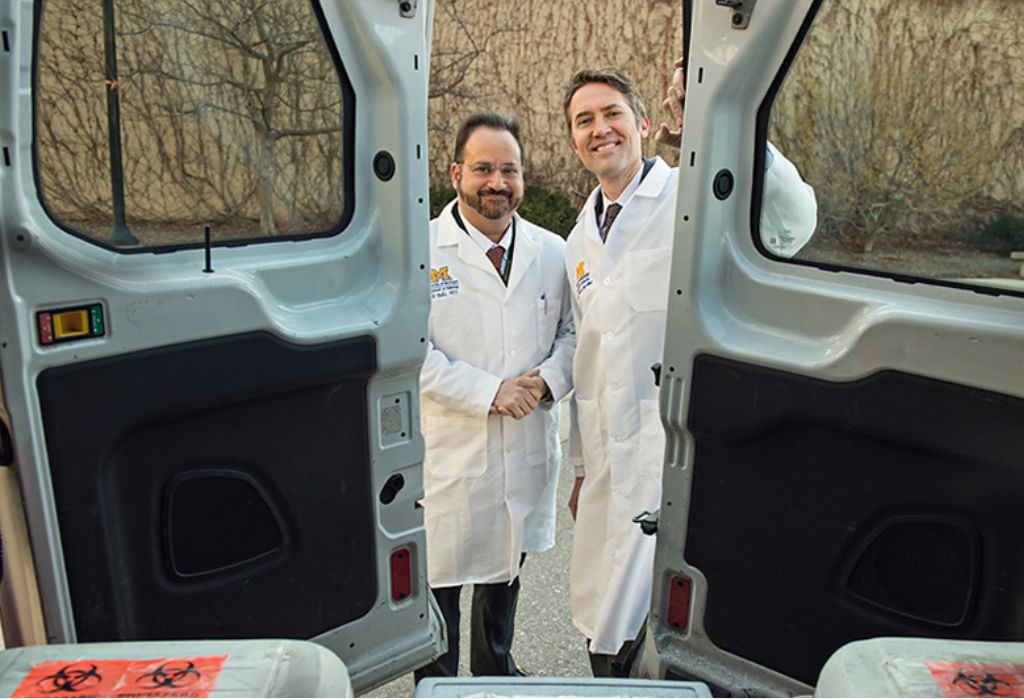


He attended college at the University of Pennsylvania, first following his father and grandfather into business, but eventually, after months of feeling restless, switched his major to physics. For the first time in his life, he discovered he had a passion for learning. He also recalls a key conversation with his mother, a school psychologist, which led to his awakening to medicine and the study of the human mind.
After graduation, Schroeder decided to join some friends backpacking in West Africa. As a percussive musician, he wanted to learn more about African drumming, so he threw a copy of African Rhythm and African Sensibility into his backpack and headed to Cote d’Ivoire. When he pulled out that book, to his surprise he realized it was written about a community in Tamale in neighboring Ghana. Schroeder headed up to Tamale and sought out the city cultural center for lessons. While the main drummer in the book had passed, the new musical director was surprised to see that he was pictured as a child in the book. Schroeder fondly recalls moving with the musicians from event to event, including a multi-day funeral for a chief outside of Tamale. He eventually rejoined his companions, and they found their way to Kariyangwe, Zimbabwe. This is in a Tonga region, a small demographic in the country due to colonially drawn country borders. The Tonga were relocated after the damming of the Zambezi River to an arid environment to live as subsistence farmers. Education was a major financial burden for these families as public advanced schooling was not fully covered by the state. Schroeder and his friends created the Kalai Foundation, which funded more than 250 students in the ensuing years.
Upon returning home, Schroeder went to UCSD for medical school and a PhD in neuroscience, joining a neurophysics lab. During rotations, his team was caring for a patient who was repeatedly admitted for hyponatremia, but no cause had ever been identified. Schroeder’s team was considering the possibility that it may be due to a healthy dose of aspirin the patient routinely took, but blood tests were negative. Schroeder decided to seek out the lab to learn more. He knocked on the door and met the director, Dave Herold. “The energy in the lab was completely different than on the wards, and it was an energy that just felt right.” That was the seed for to Schroeder change his career path to Clinical Pathology.
 “During my education, I had been searching for ways in which my training in neuroscience or psychiatry may be useful for collaborations in some of the African countries I had grown to know, but it wasn’t so obvious back then. The global health focus was on priority diseases like tuberculosis, malaria, and HIV. However, for those diseases, the laboratory played a critical role. “I had the sense that there would be a lot of interest in strengthening laboratory systems in general, and I think it’s fair to say that has turned out to be true .” At that moment, he began to feel less career angst and knew he was on a promising path.
“During my education, I had been searching for ways in which my training in neuroscience or psychiatry may be useful for collaborations in some of the African countries I had grown to know, but it wasn’t so obvious back then. The global health focus was on priority diseases like tuberculosis, malaria, and HIV. However, for those diseases, the laboratory played a critical role. “I had the sense that there would be a lot of interest in strengthening laboratory systems in general, and I think it’s fair to say that has turned out to be true .” At that moment, he began to feel less career angst and knew he was on a promising path.
His next step was to become a resident in Pathology at Stanford. His goal was to develop point-of-care diagnostics for global health applications. But, first, he wanted to conduct a needs assessment of what diagnostics would be most useful. “And, basically, I’ve never stopped doing that.” A Google search led him to Tim Amukele, who at the time was a global health diagnostics fellow with Dr. Jack Ladenson at Washington University. He made a cold call to Tim. “We have been working together since, one project after the next. Finding a solid research partner was absolutely key to my career development.”

 Fast forward to 2018 and the WHO published its first EDL, now in its third edition and Schroeder is serving on the committee responsible for its development. So far, India and Nigeria have adopted National EDLs and there are several countries pursuing the same. Since that time, Schroeder has given an AACC plenary on the topic with Tim, contributed as an author to the Lancet Commission on Diagnostics, and has been developing models for the rational design of laboratory networks. This May, the World Health Assembly will be voting to pass a resolution on the importance of diagnostics, including a focus on the adoption of National EDLs.
Fast forward to 2018 and the WHO published its first EDL, now in its third edition and Schroeder is serving on the committee responsible for its development. So far, India and Nigeria have adopted National EDLs and there are several countries pursuing the same. Since that time, Schroeder has given an AACC plenary on the topic with Tim, contributed as an author to the Lancet Commission on Diagnostics, and has been developing models for the rational design of laboratory networks. This May, the World Health Assembly will be voting to pass a resolution on the importance of diagnostics, including a focus on the adoption of National EDLs.
Michigan has been a great place for Schroeder. Not only is his family nearby, “but U of M has one of the greatest concentrations of health services researchers in the country and a strong history of partnering with Ghana. The UM Global Reach program made some incredible introductions for me at the University of Ghana and Ghana Health Services, and the new UM Center for Global Health Equity has truly solidified our global health community. The remarkable thing was that when I first arrived in Ghana I was urged to visit Tamale, the very place I had grown so close to 20 years earlier.” Once there, Schroeder learned there was a recent meningitis outbreak that was missed. The car typically used for specimen transport from a large hospital was out of service, so the specimen had no way to get there. Schroeder, in partnership with Ul Balis, UM Professor of Pathology Informatics, the Tamale Zonal Laboratory director, Abass Abdul-Karim, and the National Public Health Laboratory director David Opare, submitted and received funding for a Gates Foundation grant to develop and pilot an “Uber for Labs” app. That pilot was successful, improving antenatal care access to mothers. This system was also piloted for TB surveillance, and in just a couple of months, they identified six previously unknown cases. On another project, funded by the NIH, Schroeder is working with Ernest Kenu at the University of Ghana, several leaders in Ghana Health Services, and a prior collaborator at Johns Hopkins, David Dowdy, to map and model the laboratory network in Ghana.
Not all of Schroeder’s work is being performed internationally, of course. In addition to serving as Medical Director for Point-of-Care Testing and Satellite Phlebotomy, he is Associate Director, of the Division of Clinical Pathology and in that role is focusing on laboratory stewardship efforts. “Laboratory stewardship is about how to use pathology and laboratory medicine to the greatest effect, and it dovetails perfectly with the focus of global health diagnostics.” Schroeder was introduced to lab stewardship by Dave Keren, UM Professor of Pathology, and then the Division of Quality and Healthcare Improvement asked Schroeder to work with them on the topic. Lab stewardship involves reaching outside of Pathology to partners in other clinical departments, something Schroeder very much enjoys, and it brings him back to his PhD training, in that “there’s a lot of psychology that goes into medical decision-making, including the Daniel Kahneman cognitive biases like anchoring and the ‘nudge’ strategies that can be used to prevent errors in ordering or interpretation.”
“Paper requisitions used to give labs a certain amount of oversight for what providers would order. Now, providers order through the EHR using preference lists and order sets that are often created by those outside of Pathology. It’s easy to see how the wrong tests may be inadvertently encouraged.” Lab stewardship aims to curb inappropriate testing and fill in gaps where more testing should be performed. A better understanding of the reasons patients do not obtain regular A1C tests for diabetes, for example, could make a significant health impact. “There may be demographic testing deserts that could be identified. Why is testing not being completed? Do patients understand where to find our phlebotomy sites? Can point-of-care testing help?” He added, “As we move to value-based care, we need to effectively use the labs. Laboratory testing only accounts for about 3% of healthcare costs so should be relied upon, and in many cases increased, as part of pro-active health care to identify those in the greatest need of precious health system attention.”
In looking at his career, Schroeder finds one of the most rewarding aspects is his work with his partners around the world. “I find great joy in working with my colleagues and collaborators. I cannot overestimate or overstate how much they mean to me and how much meaning they bring to my work.” His love of data enables him to sift through vast amounts of it to find the patterns and the connections, which he can then share with others, positively impacting patient care around the world.